Thinking about buying a dirt bike? It’s a thrilling experience, but before you make a purchase, asking the right questions is essential. Whether you’re buying a brand-new model or looking for a good deal on a used bike, knowing what to ask can make all the difference between a fun experience and a buyer’s regret. This guide is packed with the 50 essential questions you should ask to ensure you’re getting a bike that fits your needs, budget, and expectations.
What to look for when buying a new or used dirt bike
1. Why do you want a dirt bike?
Consider what you’ll use it for: casual weekend rides, motocross racing, or adventure trails? Different uses might lead to different choices.
2. What type of dirt bike is best for you?
From trail bikes to dual-sport, each type of dirt bike serves a unique purpose. Identify which type aligns with your goals.
Budget Considerations
3. How much are you willing to spend?
Budgeting is crucial. Remember that the bike itself isn’t your only cost—you’ll need gear, insurance, and maybe a trailer if you don’t already have one.
4. What extra costs should you expect?
Factor in maintenance costs, which can vary depending on whether you buy new or used. Dirt biking gear, from helmets to boots, is also a necessary expense.
Bike History and Condition (for Used Bikes)
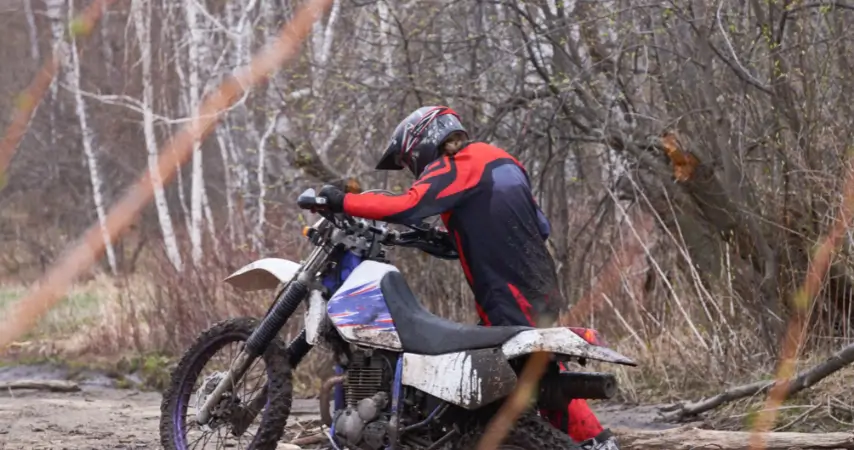
5. How many previous owners has the bike had?
Knowing the bike’s history gives insight into how it’s been handled.
6. Does it come with a maintenance record?
A maintenance log is a good sign that the previous owner took care of it.
7. Are there visible signs of wear and tear?
Check for rust, dents, and worn-out parts, which can give clues about the bike’s overall condition.
Mechanical Condition
8. What’s the status of the engine?
The engine is the heart of your bike. Listen for unusual noises and ask about recent repairs or rebuilds.
9. How does the suspension feel?
A well-maintained suspension is crucial for handling, especially if you’ll be riding on rough trails.
10. How are the tires looking?
Worn-out tires can be costly to replace, so check the tread depth and sidewall condition.
Performance History
11. Has the bike been in any accidents?
A crash history isn’t necessarily a dealbreaker, but you’ll want to know about any major repairs and potential impacts on performance.
12. Were there any modifications made by previous owners?
Modifications can impact how a bike handles, and not all mods are beneficial, depending on your experience level and intended use.
Legal Documentation
13. Does the bike have a title and registration?
For used bikes, ask to see the title to confirm legal ownership. Registration may also be required in your area.
14. Have you checked the VIN?
A Vehicle Identification Number (VIN) check can confirm the bike’s history, including any reported theft or salvage records.
15. Is there a bill of sale?
A bill of sale protects both buyer and seller and should include the bike’s VIN, price, and date of sale.
Specifications and Model Details
16. What year and model is the bike?
Some years or models are more desirable due to reliability or ease of finding parts.
17. Is the brand known for reliability?
Brands like Honda, Yamaha, and KTM have reputations for quality. Researching reviews and forums can provide valuable insights.
Engine Size and Power
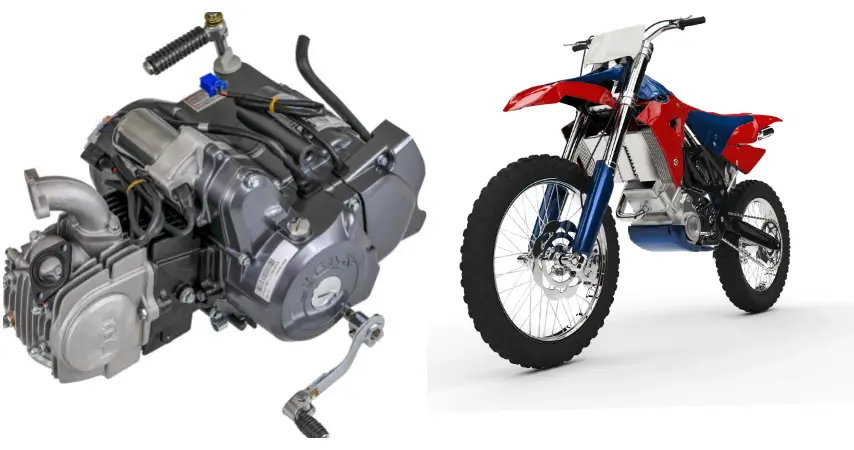
18. What’s the engine’s displacement (CC)?
The higher the CC, the more powerful the bike. Beginners may want to start with a smaller engine for better control.
19. How much power output does it have?
Make sure the bike’s power aligns with your skill level. Too much power can be difficult for beginners to manage.
Maintenance Requirements
20. How often does it need oil changes and tune-ups?
Maintenance schedules vary by brand and model, so be clear on what your bike requires.
21. What mechanical skills will you need?
Some bikes need more DIY skills to maintain. Make sure you’re up for the upkeep if necessary.
Test Riding and Inspection
22. Can you take it for a test ride?
A test ride reveals how the bike feels, handles, and sounds. Don’t skip this step if possible.
23. What should you look for during the ride?
Pay attention to how smoothly it shifts gears, the responsiveness of the brakes, and any unusual sounds.
Inspecting for Modifications
24. Are there any custom modifications?
Ask about any performance mods, suspension adjustments, or body part replacements, as they can affect resale value and handling.
25. How do mods impact the bike’s lifespan?
Some mods may strain the engine or other parts, leading to faster wear.
Resale Value Considerations
26. How do brand and model impact resale value?
Brands known for durability often retain more value. Resale potential may matter if you plan to upgrade later.
27. What’s the market value for similar bikes?
Research similar models to understand if the asking price is fair and consider market trends.
Negotiating the Price
28. Are there any red flags during inspection?
If you spot issues during your inspection, use them as leverage when negotiating the price.
29. What’s the seller’s lowest offer?
Knowing your budget range can make negotiating smoother. Be polite and willing to compromise.
Getting a Second Opinion
30. Is a knowledgeable friend or mechanic available?
Sometimes, a second opinion can spot things you may overlook, particularly if they’re experienced with dirt bikes.
31. Should you pay for a professional inspection?
A mechanic can provide an objective assessment, which may save you from costly repairs later.
Conclusion
Choosing a dirt bike is an exciting journey, but one that deserves careful thought. By asking these 50 essential questions, you can confidently decide if a particular dirt bike is the right fit for you. Remember, the goal is to make an informed purchase that you’ll enjoy for years to come!
FAQs
1. What’s the best way to start dirt biking on a budget?
Buying used, looking for deals on gear, and learning basic maintenance can keep costs low.
2. How often should I expect to maintain a dirt bike?
Most dirt bikes need regular oil changes, air filter cleaning, and chain lubrication to stay in top condition.
3. Can I negotiate the price of a new dirt bike?
Yes, dealers may have some flexibility, especially on older models.
4. Are older dirt bikes still reliable for beginners?
Many older models are well-built and can offer reliability with the right maintenance.
5. Should I buy dirt bike gear before the bike itself?
Yes! Safety gear is essential for every ride, so it’s wise to have it ready.


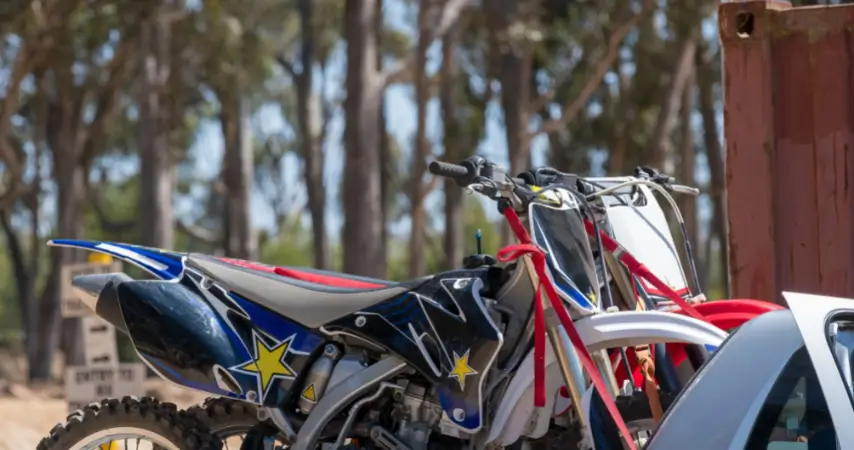
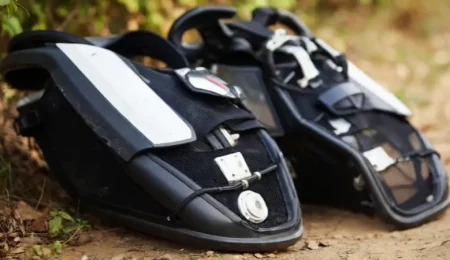
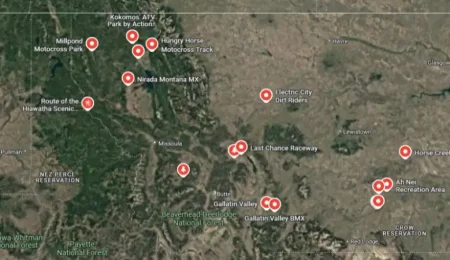

Leave a Reply